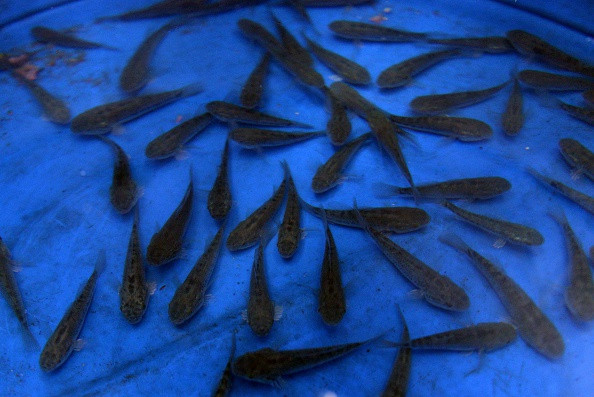9,200-year-old fermented fish bones discovered in Sweden show early signs of settlement

A large storage of fish has been found at an Early Mesolithic settlement in southern Sweden. Archaeologists said that large quantities of fish had been fermented at the 9,200-year-old site, indicating an early sign of settlement in the Nordic region.
As many as 30,000 fish bones were recovered from the site located at what was once a lake near the outlet of the Baltic Sea in Solvesborg in Blekinge province. The discovery represents the world's earliest evidence of fermentation.
"Our findings of large-scale fish fermentation, a traditional way of preserving fish, indicate that not only was this area settled at that time, it was also able to support a large community", osteologist Adam Boethius at Lund University, who made the discovery, said in a statement.
"These findings indicate a different time line, with Nordic foragers settling much earlier and starting to take advantage of the lakes and sea to harvest and process fish," he added.
Boethius said that the fish remains were remarkably well-preserved for several thousand years. Such a preserved state of bones implies that the fermentation process used by prehistoric inhabitants was quite complex.
The Nordic people acidified the fish using pine bark and seal fat, and then wrapped the entire content in seal and wild boar skins and buried it in a pit covered with muddy soil, Boethius explained. This type of fermentation suggests that Nordic societies were far more developed than previously thought, he claimed.
"The discovery is quite unique as a find like this has never been made before. That is partly because fish bones are so fragile and disappear more easily than, for example, bones of land animals. In this case, the conditions were quite favourable, which helped preserve the remains", Boethius stressed.
The prehistoric fish remains could also be an early precursor to today's Swedish dish, fermented herring, researchers suggested. Analysis of the bones further showed that at least 60 tonnes of freshwater fish must have been preserved at the site.
© Copyright IBTimes 2025. All rights reserved.






















